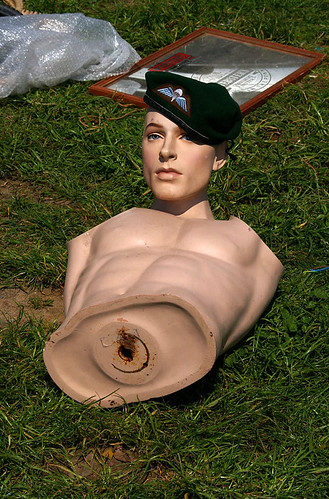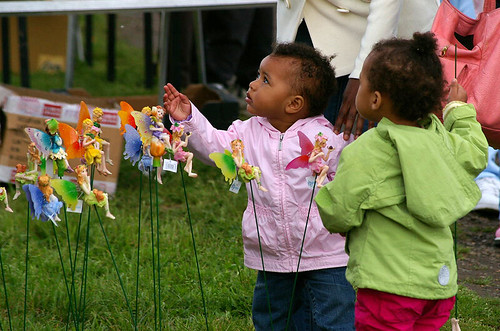-
Repeating a survey Darwin did 150 years ago
-
The Premiership will be a poorer place without him.
-
It’s always a good day when Funky16Corners Radio comes out with a new installment
-
political murals in Nothern Ireland
Month: July 2006
During the American War of Independence, the British promised freedom and land to any slaves who left their masters and served with the British. Many thousands did so, and after the war they were taken first to Nova Scotia and then settled in a colony in Sierra Leone. This book tells that story.
Among the slaves who decided that their best hope of freedom was with the British were some who had belonged to George Washington. At times I got the feeling that Schama, as a British historian working in the US, got a degree of mischievous pleasure from writing about the War of Independence from an angle that shows the British as the defenders of liberty and equality in the face of American tyranny.
It’s not that simple of course. The original decision to offer freedom was pragmatic rather than a principled, and in practice the implementation of it was consistently undermined by the greed, paternalism and piety of British administrators. The book does include some genuinely heroic British figures, but there are no shortage of complete shits as well.
It’s an interesting story and a moving book.
FSotW: Car Boot Britain
Links
-
because graphics are *so* overrated
-
Congotronics
-
One of the great acts of cultural vandalism of our time turns out to be a well-intentioned mistake.
-
via Metafliter. interesting if not actually attractive.
-
How to make a *proper* motorhome
-
weird chinese military installation spotted on Google Earth
-
Zidanerie with a great choon attached
Anglo-Saxon literature
I was lying awake last night, unable to sleep because of the heat, and wondering whether translating a bit of Anglo-Saxon poetry would get me out of my lengthening barren spell. I think the majority of people who did my degree resented having to spend such a lot of time on Anglo-Saxon, but I always liked it.
I think what sticks with me about A-S verse is a mood more than anything. I remember hearing a documentary on Radio 4 a few years ago about different conversational styles across Europe. Apparently in Finland they have a culture of only speaking if they’ve got something important to say, with the result that for long periods at Finnish dinner parties, everyone is just sitting eating in silence. And then when they do speak, they speak slowly and deliberately. I suspect that the Anglo-Saxons had something of the same serious-minded taciturnity, laced with a mix of testosterone and pessimism. If that’s right, they probably looked on linguistic virtuosity with some suspicion. But I find that quality of seriousness makes up for any lack of verbal fireworks. It’s like the appeal of plainsong.
They were a gloomy bunch, of course. The most famous image in A-S literature is probably from Bede’s Ecclesiastical History of the English People. King Edwin of Northumbria is considering whether to convert to Christianity, and one of his advisors says
The present life of man, O king, seems to me, in comparison of that time which is unknown to us, like to the swift flight of a sparrow through the hall where you sit at supper in winter, with your commanders and ministers, and a good fire in the midst, while the storms of rain and snow rage outside; the sparrow, I say, flying in at one door, and immediately out at another, while he is inside, is safe from the wintry storm; but after a short space of fair weather, he immediately vanishes out of your sight, into the dark winter from which he had emerged. So this life of man appears for a short space, but of what went before, or what is to follow, we are utterly ignorant. If, therefore, this new doctrine contains something more certain, it seems justly to deserve to be followed.
Feasting in the hall was the image of the good things in life for the Anglo-Saxons, but as in that passage, there’s always a sense of it as a refuge from the hostility of the world. That’s why exile is such a key theme, and why Grendel taking people from Heorot is so traumatic; because the hall is, above all, a safe haven.
And Anglo-Saxon pessimism goes beyond believing that the world is hostile; they believed that the world was in decline. They weren’t fools; they knew about the Romans and lived among Roman ruins. Archeologial evidence suggests that the Saxons in London held their folkmoots in the old Roman amphitheatre. They would have known that they were living the remnants of a more powerful, sophisticated, and technologically advanced culture than their own, and they foresaw humanity continuing its downward spiral. That adds to the foreignness. The last thousand years of European history have seen continuous growth in wealth, technology and knowledge, and however much people worry about the environment or nuclear annihilation or a clash of civilisations, deep down we believe that’s the norm.
All that pessimism created a literature in a minor key. The plot of Beowulf – heroism, treasure and dragonslaying – makes it easy to caricature it as a kind of C8th action movie. And in a sense that’s true. There’s no great psychological complexity to the characters. Even Arnie might just about be able to pull off the role of Beowulf, as long as the dialogue was kept to a minimum. What gives the poem substance isn’t so much the plot but the mood and context. Beowulf doesn’t save the world, he just holds back the inevitable for a while, and at the end he dies and his country collapses. If Predator had been directed by Ingmar Bergman it might have been something like Beowulf.

